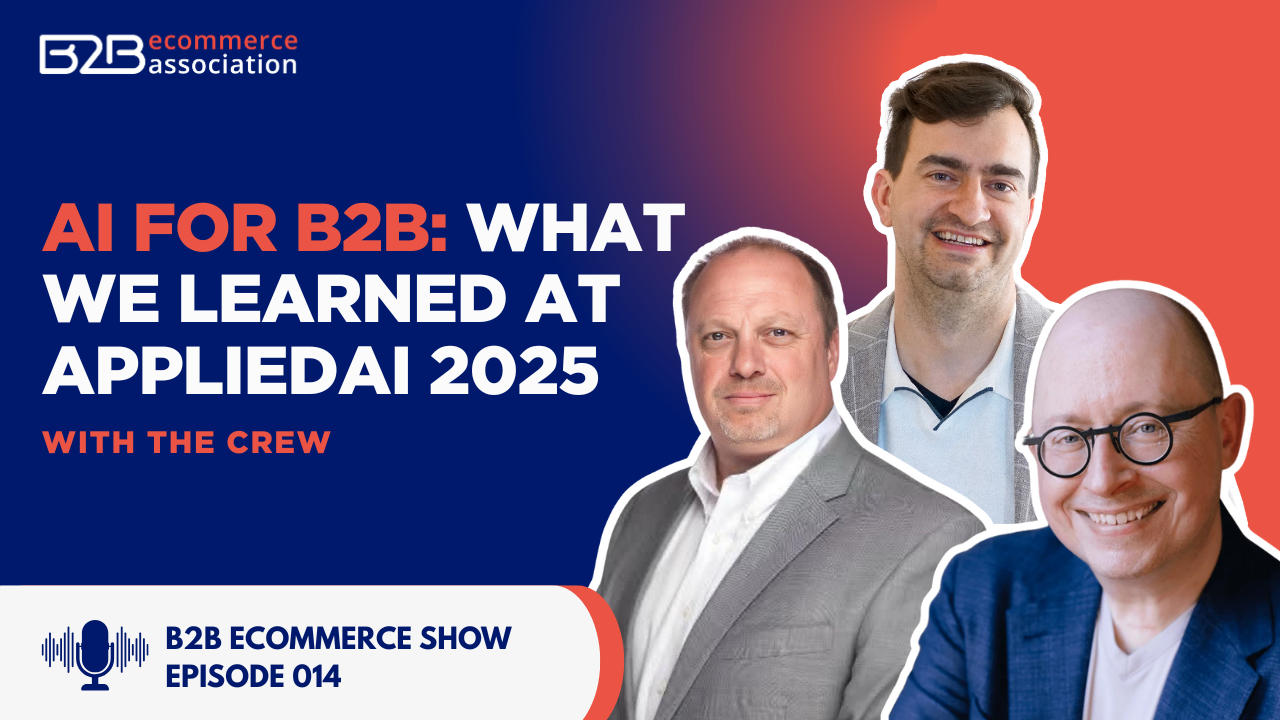Agentic AI: Your Next Employee Isn’t Human with Jason Hein & Chris Gee
“AI doesn’t come with your business knowledge, it learns it. Train it like a team member.” That was one of the standout insights from Episode 15 of The B2B eCommerce Show, where Justin King sat down with Jason Hein and Chris Gee. to explore the emergence of Agentic AI and its impact on the B2B commerce landscape.
We’re long past generic conversations about “AI in business.” What’s coming next, and what’s already quietly being adopted, is Agentic AI: autonomous, task-driven agents that can not only interact with digital systems but can do so with goals, decision-making power, and contextual memory.
What Is Agentic AI?
Agentic AI refers to AI systems that operate with autonomy, guided by goals rather than step-by-step instructions. Unlike traditional AI tools that react to prompts or scripts, agentic systems can plan, adapt, and complete complex workflows, much like a human employee.
Think of it this way: ChatGPT answers questions. An agent books your flight, coordinates it with your calendar, finds hotels based on your preferences, and adjusts plans if you reschedule—all without direct input beyond the goal. And crucially, it can do all of this across multiple systems simultaneously.
Why B2B Needs to Pay Attention
While Agentic AI might sound like science fiction, it’s already arriving, fast. SAP, for example, is rolling out agents for procurement and supply chain tasks. And major platforms like Shopify and Microsoft are building around emerging agent communication protocols like MCP (Model Context Protocol).
The message? B2B is on the edge of a major shift. As Hein puts it: “In most industries, small companies can be more agile. This tech gives SMBs an opportunity to act like enterprise, and enterprises the urgency to keep up.”
What This Means for Distributors and Manufacturers
When a human customer visits your site, they’re browsing and filtering. When an agent visits your site, it’s querying structured data, parsing product attributes, and making rapid-fire decisions. If your content isn’t complete, consistent, and clear, if your specs are messy or your taxonomy is weak, you won’t even be considered.
Agents won’t wait. They’ll go to the next site.
And they’ll remember which suppliers made their jobs easier. Over time, that has real commercial consequences: return rates drop, satisfaction rises, and agent-based ordering flows become predictable and scalable.
So What Should You Do Now?
Here are three foundational takeaways from the episode:
- Structure Your Product Data, Now
Invest in making your product specs, attributes, and descriptions correct, complete, consistent, and clear. Agents can only act on what they can understand. - Design for Two Audiences
We’re entering a phase where you must serve both humans and AI agents. Traditional UX isn’t enough, you’ll also need to optimize for crawlability, accessibility, and machine readability. - Explore Emerging Agent Standards Like MCP
Agentic interaction standards (like MCP) are being adopted across major platforms. These define what agents can expect when they visit your site, what actions they can take, and what content is available. Ignore this, and you’re invisible to agents.
“You don’t need to build agents right now, but you do need to prepare for agents using your site,” said Chris Gee. “If you’ve already invested in structured content and SEO, you’re ahead of the curve. But the gap will widen quickly.”
From EDI to Agentic Commerce
The analogy to EDI (Electronic Data Interchange) came up several times in the episode. But as Jason Hein explains, agentic commerce is more than just EDI 2.0:
“EDI ran on rails. It was fast but inflexible. Agentic AI is like a fleet of intelligent couriers who can figure out how to get the job done, on your site, in your catalog, through your cart.”
The Bottom Line
Agentic AI isn’t just a trend. It’s an infrastructure shift. It’s the next wave of automation, and it’s going to favor businesses that:
- Know their data
- Build for speed and clarity
- Embrace AI-readiness before it’s mainstream
Just like mobile-responsiveness or SEO, this will become table stakes. The sooner you start, the more competitive advantage you build.
“This is Bitcoin 2010,” said Justin King. “If you’re not preparing, you’re already behind.“







